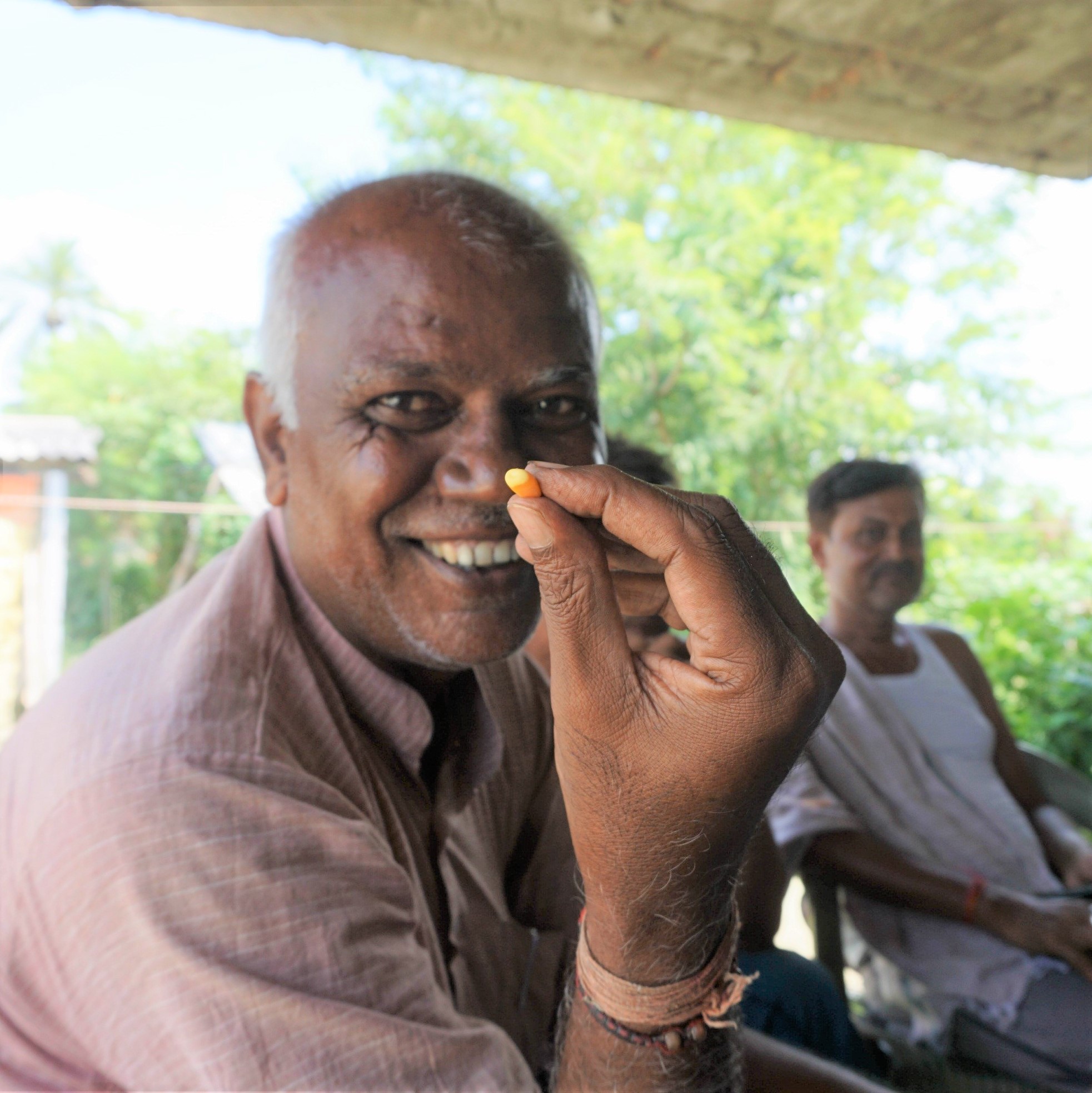
Learnings from maize seed systems for smallholder farmers
by Carolyn Cowan
Access to optimal seed is vital for smallholder farmers to achieve high quality crops that give the best yield possible, allowing them to maximize financial and nutritional gains. Understanding and evaluating the methods by which smallholders obtain their seed is fundamental to guaranteeing farmers are receiving high quality seed that will support improved livelihoods.
A multi-country study for the CGIAR Research Program on Maize (MAIZE), and implemented by researchers from the Royal Tropical Institute (KIT) and the International Maize and Wheat Improvement Center (CIMMYT) explores the merits and constraints of seed systems and suggests potential actions to enhance their usefulness to smallholder maize farmers.
The study involved household surveys and interviews with maize farmers and analysis of the seed value chain within four countries—Malawi, Zambia, Mexico (Chiapas state) and India (Bihar state), where maize is both an economically and dietary important staple crop.

The researchers found that maize farmers are increasingly purchasing seed via the formal seed system (purchasing from seed companies and agro dealers), stimulating the demand for improved hybrid varieties. This is especially so for farmers more heavily engaged in commercial maize markets, such as markets for animal feed. The advantages of increased yield from improved hybrid seed justifies the initial financial investment of buying costly seed. In the Mexico and India study sites, where there were well-developed grain markets and the formal seed sector is market-driven, this was a prevalent strategy.
In the Malawi and Zambia study sites, where farmers grew maize mainly for home consumption, traditional varieties with traits favoring culinary quality and home storage, sourced via informal seed systems (exchanging traditional varieties between family, neighbors and at local markets), were reportedly preferred. In these sites, subsidy schemes variously supported farmers’ financial investments to obtain improved hybrid seed. Such schemes bolster the formal seed system, stimulating the use of hybrid seed and seed entrepreneurship somewhat. If such schemes ceased to exist, farmers would be inclined to revert to informal seed channels and traditional varieties.
The study highlights the need for improvements in some areas of formal seed systems. Farmers perceived shortcomings with certification schemes, seed quality control at point of sale, and the availability of financial services to support investment in innovations such as improved seed and entrepreneurship. International public sector initiatives, such as MAIZE, are encouraged to address such issues by working in collaboration with private- and public-sector organizations.
The study also found that farmers typically rely on older, established varieties when they use improved hybrid seed, suggesting farmers’ trust in new seed products must be improved to ensure they adopt new and appropriate varieties that will give them optimal yields.
Given the use of such a wide variety of channels, both formal and informal, to fulfill demand for both improved hybrid seed and traditional seed, the researchers stress the importance of evaluating traditional seed systems and formal public breeding efforts and seed systems. Such an approach will ensure smallholder farmers receive optimal seed quality regardless of which channel they use to source their seed, allowing them to reach their farming objectives, whether it be increased yields, increased resilience and resistance or desired culinary qualities and storage capacity.
To read the original study, “Maize seed systems in different agro-ecosystems; what works and what does not work for smallholder farmers”, please click here.
Part of this work was facilitated by the CGIAR Research Program on Maize (MAIZE)
Original citation: Hoogendoorn, C.J., Audet-Bélanger, G., Böber, C., Donnet, L.M., Bisani Lweya, K., Malik, R.K., Gildemacher, P.R. (2018) Maize seed systems in different agro-ecosystems; what works and what does now work for smallholder farmers.
CIMMYT, improved seed, KIT, Maize, seed certification, seed systems
